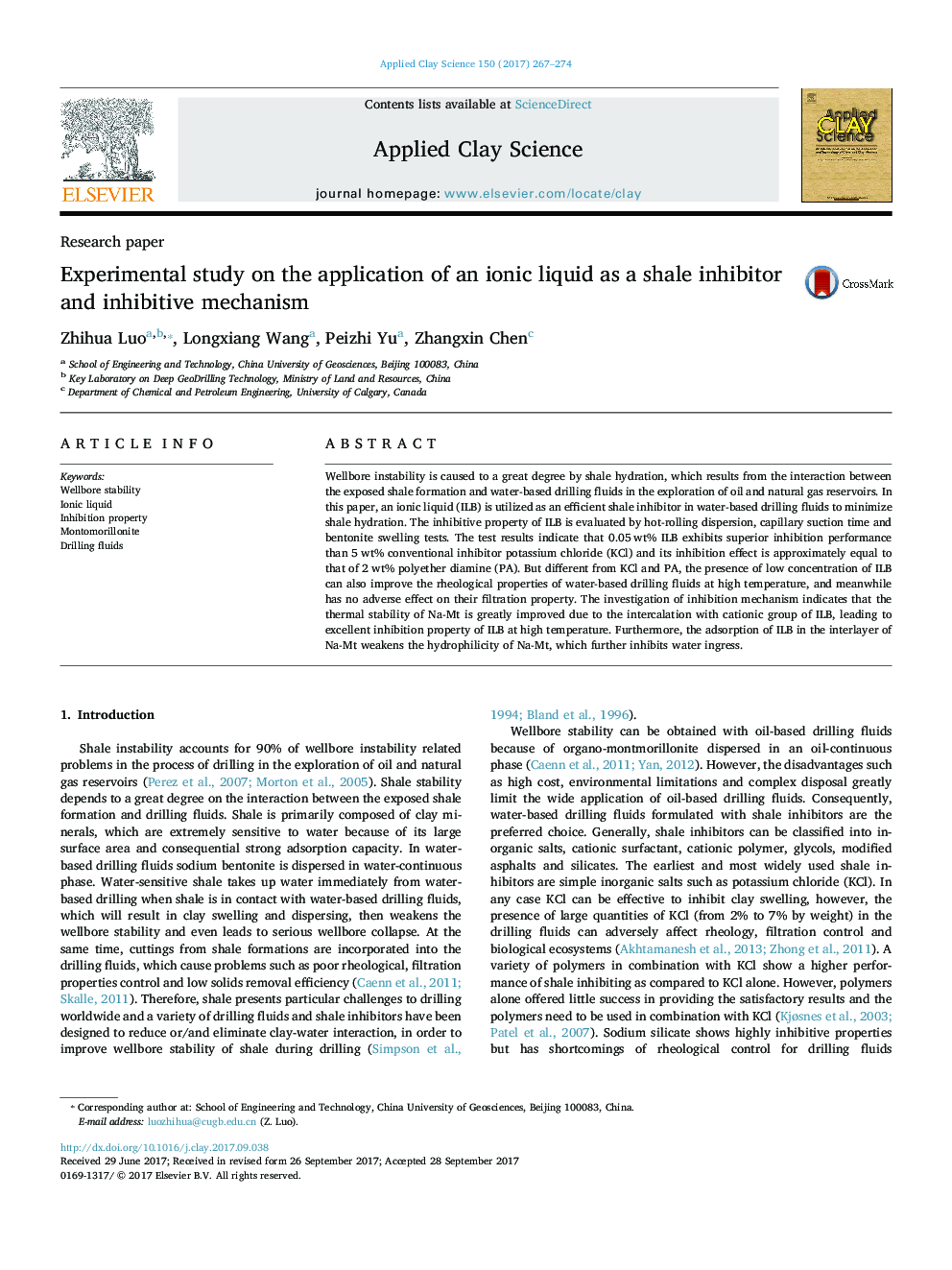| Article ID | Journal | Published Year | Pages | File Type |
|---|---|---|---|---|
| 5468507 | Applied Clay Science | 2017 | 8 Pages |
Abstract
Wellbore instability is caused to a great degree by shale hydration, which results from the interaction between the exposed shale formation and water-based drilling fluids in the exploration of oil and natural gas reservoirs. In this paper, an ionic liquid (ILB) is utilized as an efficient shale inhibitor in water-based drilling fluids to minimize shale hydration. The inhibitive property of ILB is evaluated by hot-rolling dispersion, capillary suction time and bentonite swelling tests. The test results indicate that 0.05Â wt% ILB exhibits superior inhibition performance than 5Â wt% conventional inhibitor potassium chloride (KCl) and its inhibition effect is approximately equal to that of 2Â wt% polyether diamine (PA). But different from KCl and PA, the presence of low concentration of ILB can also improve the rheological properties of water-based drilling fluids at high temperature, and meanwhile has no adverse effect on their filtration property. The investigation of inhibition mechanism indicates that the thermal stability of Na-Mt is greatly improved due to the intercalation with cationic group of ILB, leading to excellent inhibition property of ILB at high temperature. Furthermore, the adsorption of ILB in the interlayer of Na-Mt weakens the hydrophilicity of Na-Mt, which further inhibits water ingress.
Related Topics
Physical Sciences and Engineering
Earth and Planetary Sciences
Geochemistry and Petrology
Authors
Zhihua Luo, Longxiang Wang, Peizhi Yu, Zhangxin Chen,
